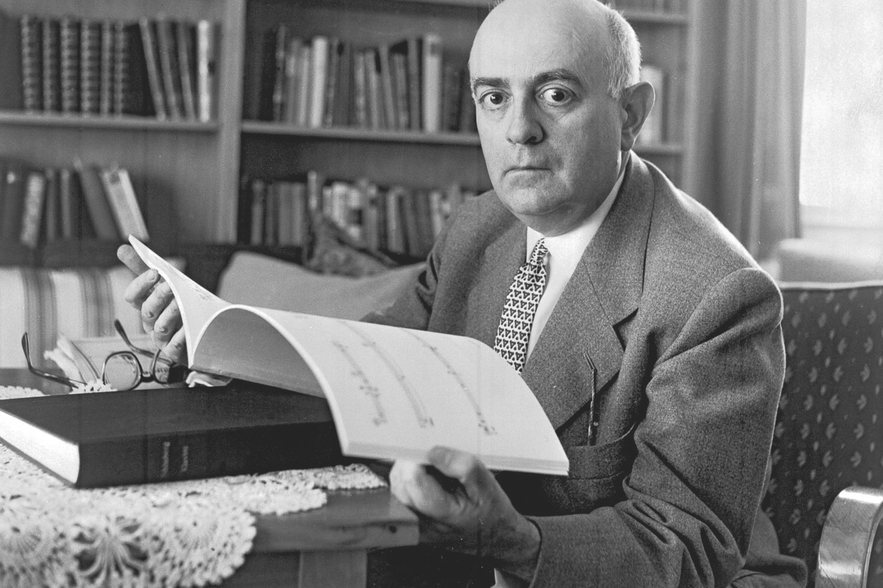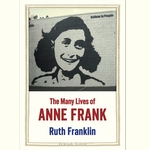The Frankfurt School Knew Trump was Coming

- Tag/Uhrzeit
- –
- Ort
- Center for Jewish History (map)
15 W. 16th St.
New York, NY 10011 - Format
- Persönlich
- Co-Sponsoren
In a post-election essay for the New Yorker, the critic Alex Ross wrote that the “combination of economic inequality and pop-cultural frivolity” in current American life were precisely the fertile ground for an American catastrophe that the Jewish intellectuals of the Frankfurt School anticipated in their studies of antisemitism, mass culture, and the “authoritarian personality”. Jack Jacobs (CUNY), Jonathon Catlin (Princeton), and Liliane Weissberg (Penn) discuss how the Frankfurt School’s analysis of antisemitism in particular sheds light on the racism undergirding contemporary right-wing populist movements. Anson Rabinbach (Princeton) moderates.
Jack Jacobs is a professor of political science at John Jay College and the Graduate Center, City University of New York. He is the author of On Socialists and “the Jewish Question” after Marx (1992), Bundist Counterculture in Interwar Poland (2009), and The Frankfurt School, Jewish Lives, and Antisemitism (2015), and is the editor of Jewish Politics in Eastern Europe: The Bund at 100 (2001) and of Jews and Leftist Politics. Judaism, Israel, Antisemitism and Gender (2017).
Jonathon Catlin is a PhD candidate in the Department of History at Princeton University. He studies modern European intellectual and cultural life, with an emphasis on twentieth-century German and Jewish philosophy and social theory. His work traces the concept of “catastrophe” in humanistic reflection from biblical texts up through intellectual responses to contemporary events such as 9/11. Catlin’s project considers the Holocaust as a point of rupture with philosophical tradition in German-Jewish thought, with particular attention to the writings of the Frankfurt School.
Liliane Weissberg is Christopher H. Browne Distinguished Professor in Arts and Sciences and Professor of German and Comparative Literature at the University of Pennsylvania. Her interests focus on late eighteenth-century to early twentieth-century German literature and philosophy. Among her book publications are a critical edition of Hannah Arendt’s Rahel Varnhagen: The Life of a Jewess (1997), Cultural Memory and the Construction of Identity (with Dan Ben-Amos, 1999), Affinität wider Willen? Hannah Arendt, Theodor W. Adorno und die Frankfurter Schule (2011), Über Haschisch und Kabbalah: Gershom Scholem, Siegfried Unseld und das Werk von Walter Benjamin (2012), and Writing with Photography (with Karen Beckman, 2013).
Anson Rabinbach is Philip and Beulah Rollins Professor of History at Princeton University. A specialist in modern European history with an emphasis on intellectual and cultural history, he has published extensively on Nazi Germany, Austria, and European thought in the nineteenth and twentieth centuries. In 1974 he co-founded the premier journal of German studies in the United States, New German Critique, which he continues to co-edit. In 1979 he published The Crisis of Austrian Socialism: From Red Vienna to Civil War 1927-1934, a study of Austrian culture and politics between the wars. The Human Motor, an investigation of the metaphor of work and energy that provided modern thinkers with a new scientific and cultural framework to understand the human body, appeared in 1991 and has since been translated into several languages. His study of 20th century German intellectuals, In the Shadow of Catastrophe: German Intellectuals between Enlightenment and Apocalypse, was published in 1997. The Third Reich Sourcebook (with Sander L. Gilman), a collection of more than 400 documents with critical introductions, appeared in July 2013.


